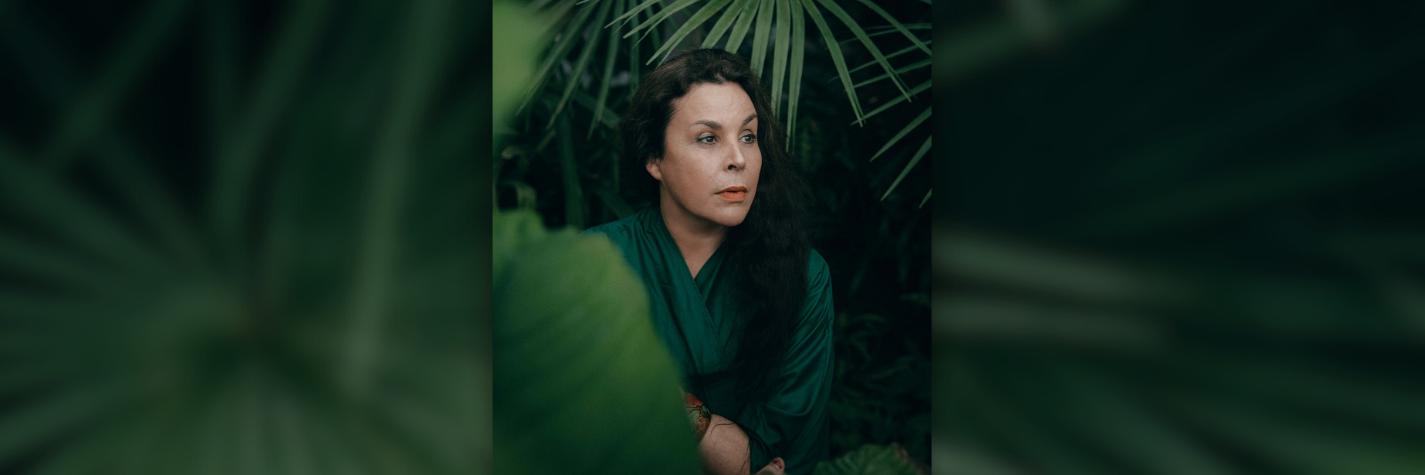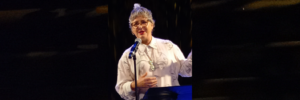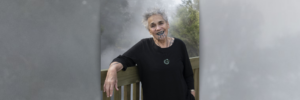
Talia Marshall (Ngāti Kuia, Rangitāne o Wairau, Ngāti Rārua, Ngāti Takihiku) is a Dunedin based writer. She has had work published in Poetry magazine, Landfall, Sport, North & South, Mana, Canvas, The Spinoff, Newsroom, Pantograph Punch and with City Gallery. In 2020 she was the inaugural Emerging Māori Writer in Residence at the IIML at Te Herenga Waka–Victoria University of Wellington, and in 2021 she won the Newsroom Surrey Hotel Writers Residency.
Congratulations on your recently released pukapuka Whaea Blue. Sometimes writers talk about their book as if it is something they’ve birthed a struggle as well as a gift. If you were to think of your book this way, who are its whanaunga? Who helped you bring this book into the world?
I don’t really do the birthing metaphor. It makes me a bit queasy, because I’m not a natural person. When my body was so natural with having my son, I was like, what is going on? Why are you so good at this? I just don’t use the birthing metaphor, because once your baby’s there, you look after it. You don’t orphan it out. I feel fine about it being in the world. My book whanaunga, for me, is Becky Manawatu. She is the first writer I really let into my life. We have a beautiful friendship.
You’ve been working on this project for years now, what is it like to finally have it published? Your work is so personal, does that make it difficult to receive feedback from readers and reviewers?
It’s been really heartening. I’ve got quite a lot of anxiety attached to it being out in the world. It goes to some dark places that the other fullas know better than to talk about but I can’t help myself. There’s actually much darker, deeper stuff that happened that I didn’t put in, but no one’s gonna give me any prizes for that.
The other thing I’ve noticed is the way I talk to Pākehā about the book is very different from the way I talk to Māori — and Noelle. I really like Noelle, and you can’t help but not actually, she’s very charming, and because she’s Irish, and they got oppressed by the English for, I think, over 600 years. I used to be a bit of an Irish history buff, because, you know, oppression — my favourite. I’ve ended up caving with her, I ended up talking to her like she was one of us. And I’m really grateful to Steve Braunius, we’re quite good friends.
My only reservation about Pākehā reviewing the book is that it won’t have a Maori eye. So it’s really good to be talking to Māori about the book too. I tend to spill too much in a chat! I’ve noticed that. I just blabber too many of the things that I’ve tried to keep under the surface of the book.
Whaea Blue reveals a lot of intimate things that you’ve lived through, and there is a vulnerability there which I imagine could make re-visiting difficult. Are there chapters in the book that you really enjoy re-reading or are especially proud of?
The only thing I’m really proud of with that book is the ending. That chapter, just moving through Hinekawa, my first matrilineal tipuna, to me and Kerry in the car. Kerry, my friend, she’s pretty much held me up over the last 3, 4, 5.. No 30 years. And I just love her.
The other chapter I’m kind of partial to is the one where I move in with that mad, racist hippie, burning white sage! I like that one because it’s almost like a short story. The way that unfolded was just like, I wanted the reader to feel like there’s these whero flags and I’m just like, ‘No, no, no, no’. Fucking amazing house, 85 bucks a week rent — composting toilet, but you know, the rest of the house was magnificent! And I do like architecture, because if I could be middle class and rich, I’d be grateful, and I’d know how to spend my money on good stuff.
What do you think your mokopuna will think of your book? What will their reactions be?
Ah, my grandchildren. I’m obsessed with them. I need them to be here. I said to Boy the other day, look at your hair, it looks like you’ve got a Lego piece on your head, I want grandchildren — fucking sort it out! I don’t care what they think of my book. I just care that they will love their Nana. I’ve been wanting to be a Nana since I was 35.
What would your tīpuna think? Wairuatanga is a recurring thread woven through your book. Did you follow any specific tikanga to seek their guidance when you were writing about your whakapapa?
I had a mirimiri. The practitioner, she said, “you’ve got such strong people looking after you”. Which I did feel during the mirimiri. I had this feeling, with my heart, it felt like a white ring of goodness. I’d never experienced myself as being pure or good, but my heart felt pure, so I think they’re all good with it. I think Polly is astonished by my lack of housekeeping, but I think they wanted me to and I feel okay about it.
Has it been challenging to find a balance between telling your truth, and protecting the identity of some of the people in the book, particularly the men who haven’t treated you well?
Some people are much darker than I’ve made them out to be in the book. Beautiful, damaged Māori men, they deserve a different kind of level of empathy than the likes of Ben and the Asthete. I think that was my guiding force in the book.
My publisher came to me and said to me, you’re going to have to show that guy what you’ve written about him, because otherwise he might take legal action, because he’s a white man with a job and it could affect his opportunities. And I said ‘What about Isaac? What about his opportunities?’. I felt very mixed about that. I was in a real state about it for about three days.
.
There’s stuff you don’t say and I think that stuff that you don’t say in terms of writing is what feeds it. What you leave out is as important as what you leave in. But I was so fucked off about having to take out a particular detail. I was thinking that we really need that to be the icing on the shit cake.
What does your son think of your writing career?
Boy says, I’ve got my Dad’s flair, which is a nice thing. Every now and again, he says something nice to me, my son, and I download it. Me and Boy are extremely loyal to each other.
Within the Māori Writing community, whose work do you admire and why?
It would be Alice Tawhai (Tainui, Ngāpuhi). When I read Festival of Miracles, I was like…this…THIS! She just had a way. One sentence would delineate a whole relationship and she writes about pretty full on stuff. I met Alice in real life. She doesn’t do festivals or events or anything, but if there’s a Māori writer that I really look up to, that’s Alice Tawhai, she’s magical. She’s magical!




